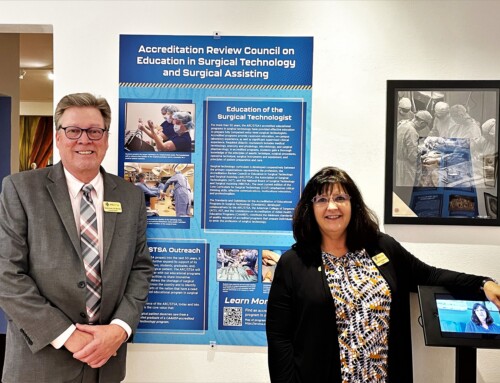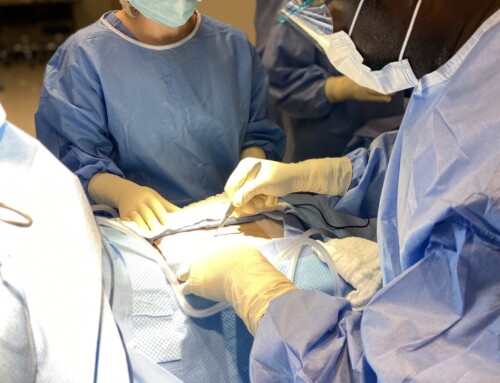 By Eboni Saurage, MS, BSHSc, ASST, CST
By Eboni Saurage, MS, BSHSc, ASST, CST
At the Louisiana State Assembly Educational Workshop in March, Dr. Elise Juergens, a perioperative circulating nurse turned scholar, brought to light that we are all guilty of overlooking our own self-care. Lack of self-care quickly leads to burnout, and given the tumultuous environment currently being experienced with the COVID-19 pandemic, her message could not have been received at a more valuable time.
Dr. Juergens discussed stereotypes imposed upon health care professionals and how such assumptions and cultural norms can perpetuate bad habits among professionals, which can lead to burnout. She also recommended self-care behaviors that can be implemented in any discipline to help prevent this burnout.
A stereotype that may sound familiar to surgical technologists, surgical assistants or educators is that of the caretaker. Many of us wear more than one hat, which is a perfect example of how caregivers hold themselves to a higher standard. We often see our position as a calling to service and are willing to take on extra work to ensure it gets done. How many times has a surgical technologist or surgical assistant worked overtime, skipped a break or shortened lunch to finish a surgical case or project? How many times has an educator taken work home to ensure students would have an exam ready or administration would have a report that was requested? These are the some of the cultural norms of being in health care education.
Recognizing the cultural norms that surround us and can be detrimental to our own well-being is an important step to preventing burnout. In health care and education, self-care is often seen as a luxury, but Dr. Juergens stressed that continued self-sacrifice for our work will only lead to burnout, turnover and the continual perpetuation of toxic cultural norms. Once the norms have been recognized, we have the power to ignore the norm and the power to take care of ourselves.
In what Dr. Juergens refers to as the “self-care evolution,” she encourages us to create a generation of health professionals who periodically check in with themselves and practice collaborative caretaking by taking care of their teams. She also gives permission to establish boundaries between our calling and our career, and implement expectation management.
Dr. Juergens’ presentation was eye opening. Although I was aware of the concepts presented, her reminder that we have the power to establish boundaries and care for ourselves was encouraging. I wish every leadership team could learn how vital its role is in the collaborative caretaking of those around them.
As a collaborative team of surgical technology and surgical assisting educators, you have permission to set boundaries. You have permission to step away from your students and reports due to recharge. You have permission to let our next generation of surgical technologists understand that caring for themselves is vital to their future.



